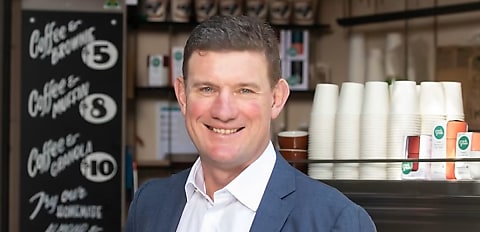Research released by the small business lender has shown the key issues shaping the voting preferences of small-business owners, with cost of living and inflationary pressures cited as the top factor for 84 per cent of respondents.
The research collected responses from over 500 small-business owners across Australia and was conducted online by Octopus Group in March 2025.
Rising energy prices was the second-highest issue for SME owners at 54 per cent, with a further 52 per cent saying they would vote for a government that would pledge more support for small businesses.
Among the lesser concerns were interest rates (44 per cent), government spending/national debt (33 per cent), and immigration policies (31 per cent).
Along with commercial issues, respondents also cited healthcare funding (55 per cent), housing affordability (54 per cent), and national security (24 per cent) as issues that could sway their votes.
CEO of OnDeck Australia, Cameron Poolman, said Australia’s 2.5 million small businesses “form a significant voting bloc” and their concern “cannot be ignored by either side of politics”.
Additionally, the survey asked SME owners about the main issues they would like all politicians on either side of the aisle to address in the upcoming May election.
Rising business costs such as soaring energy prices was the top concern needed to be addressed at 61 per cent, followed by 60 per cent calling for a reduction in tax rates.
Over one in two (51 per cent) said they would like to see interest rates fall, while one third said they would like to see an expansion of the instant asset write-off scheme.
According to Poolman, the recently announced federal budget offered “very little in the way of small business cost relief”.
“The Labor government is extending energy bill relief for six months to the end of 2025, which is expected to see around one million eligible small businesses receive up to $150 in rebates directly off their bills,” Poolman said.
“However, $150 is a drop in the ocean at a time when energy costs are already high – and expected to rise by between 4.2 per cent and 8.2 per cent for many small businesses.”
Announced last week (commencing 31 March), the Labor government announced an extension to the $20,000 instant asset-write off scheme by an additional 12 months, allowing small businesses with revenue of up to $10 million more time to make use of the measure.
Poolman further said: “We understand that tax cuts could have an inflationary impact that may just push interest rates higher. But, we agree with one in three small business owners who would like to see an expansion of the instant asset write-off.
“This investment is critical to building a stronger small business sector.
“The Labor government has pledged to extend the [scheme] for another 12 months to 30 June 2026 if it wins the election. However, this commitment falls short of the Coalition’s pledge to offer a permanent $30,000 instant write-off.
“We know that 98 per cent of Australian businesses are small businesses, and together they employ over five million people – about 42 per cent of the private sector workforce. Any government who overlooks the small business community at election time does so at their own peril.”
[RELATED: Labor announces extension for instant asset write-off measure]

